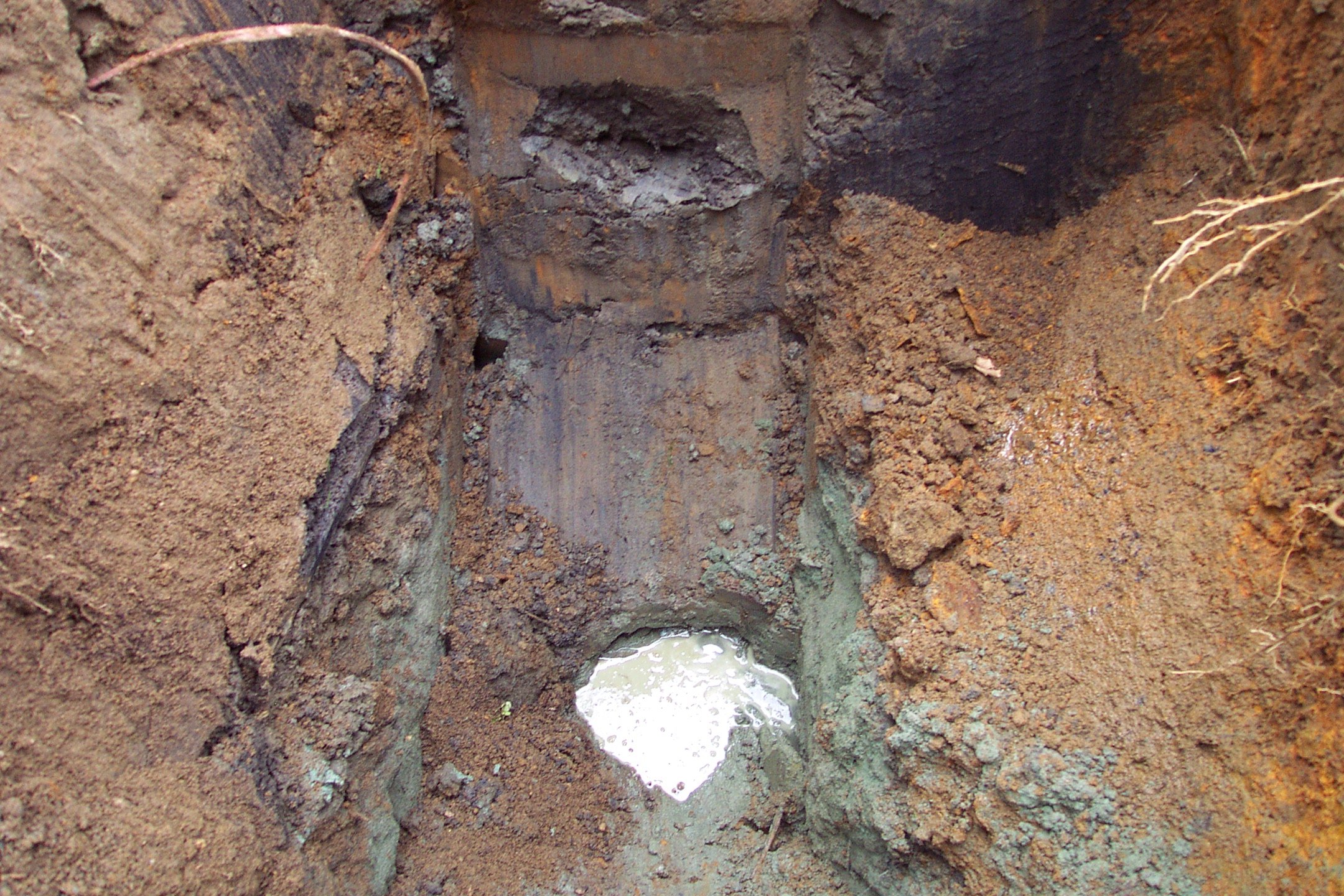Leaking Oil Tanks
Fact buried oil tanks scare both buyers and sellers of real estate. If you own a home you don't want to find out your tank is leaking. This is especially concerning if you never used the tank or bought the house with a filled in place tank.

Fact people buying homes, use the internet, have a realtor or an attorney or both. Somehow buyers will learn that old oil tanks can be a problem. So the house with an oil tank loses curb appeal.
Fact: Most tanks don't leak and many that leak don't need remediation.
Speak to a Professional
Fact: Some oil tanks leak. What if "My oil tank was removed and there were holes in the tank?".

Our office gets calls constantly from people who had their oil tank removed and the removal company found holes in the tank. They can't believe their oil tank leaked and they have to cleanup the ground. After they calm down and vent a little, I get the opportunity to review the paperwork they have regarding their tank removal and that is where things get interesting.
I can tell you where your tank removal project went south. I review the tank removal cost proposal. 90% of the time, the proposal does not discuss what would be acceptable conditions after removal and what would not, meaning if the tank leaked. There often is no report included in the price and there is zero reference to soil sampling after the tank was removed and what oil levels are or are not permissible. The most important question regarding any oil tank is if it leaked.
Anyone buying a house with a tank that was removed would want testing so they no they are not buying a property with a problem. People selling often times don’t want testing because they don’t want to find a problem, yes sad but true.
Many companies removing tanks want to find leaking tanks, since remediation is more expensive then just removing an oil tank. That said, any oil tank has the possibility of leaking so finding holes in a metal tank that has been buried for years really should be surprising, all you need to do is walk around your house and look for rust forming on exposed metal. This same thing happens to oil tanks. If the tank is or is not leaking really only is determined at the time of removal. Fortunately, NJDEP regulations are favorable to tank owners and require that when a tank is found to be leaking, the firm removing the tank is supposed to obtain five soil samples for tanks up to 500 gallons (1000-gallon tanks need 6 samples). This sampling is performed so you can evaluate the four sidewalls and bottom of the excavation for concentrations of petroleum levels. There are permissible levels of oil that can remain in the ground. Most all proposal we review lack this explanation, so I know when I have situations like this the client was never really informed of the consequences of a leaking oil tank. If this fits your situations, you should seriously consider changing companies.
Simple fact of any oil tank, no one wants one, neither buyer or seller of a property with an oil tank.
When you have the situation where your tank was removed, and it leaked. You have two options. One is to blindly excavate the soils immediately around where the tank was located. This approach is commonly utilized, the quantity of soil is typically based on how much a dump truck can hold. So, a typical dump truck can hold 23 tons so you often see companies estimate 20 to 23 tons (1 dump truck) or 40 to 46 tons (2 dump trucks). This approach is rather unscientific as no one can just look at an oil tank or an open excavation and determine how far the oil has gone.
The photo below can you see the contamination?

That was a trick question, there is no contamination in this removed tank excavation. Yes there are various color soils, but this tank didn't leak.
So don't judge a book by its cover.
So in lieu of blindly digging soil in and around the tank excavation. Your other option is to do testing (drilling boring around and inside the tank area) which would provide the horizontal and vertical extent of the contamination, often time people want to pay for the solution rather than diagnosing the problem extent. Regardless of the extent of the oil leak, remediation will be required. The extent of the contamination is not known so the cost provided are for estimation/budget purposes, there is no way to know currently if the supplied scope will or will not be sufficient to address the tank leak. It is recommended that the area be defined so a precise scope can be developed.
Want expert advice? Call our office: 888-301-1050

